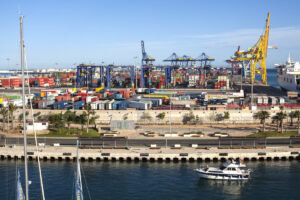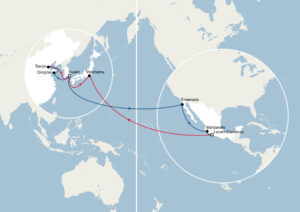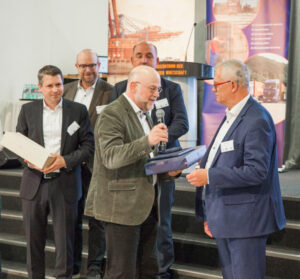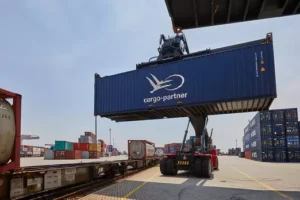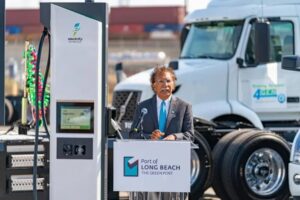Director of Terminal Automation at Kalmar, Jari Hämäläinen, has released a blog post discussing the industry’s movement toward an automated, digital supply chain, stating that “it is not a faraway reality”.
In the blog, Hämäläinen points out that automation has been in effect in the container terminal industry for a number of years, placing it as one of the pioneering industries and early adopters of the technology globally.
Hämäläinen comments: “By contrast, autonomous cars and vessels are now right in the middle of disruptive experimentation and a rapid ramp-up to commercially viable mass-market solutions in uncontrolled environments.
“In terms of maturity, autonomous cars are still behind what we are able to accomplish in container terminals, but they are catching up.”
Looking to the future, Hämäläinen envisions that the industry will feature “a transparent information flow [that] extends throughout the cargo handling and global supply chain all the way from producer to consumer.”
Within this supply chain, many industry players will not own or operate physical assets, and will instead serve their customers through purely digital means.
Hämäläinen believes that a digital environment in the supply chain will encourage openness and transparency across the sector, and will usher in a future where logistics customers are “more satisfied than ever” with their services offered to them.
Read the latest technical paper from Wolfgang Lehmacher of the World Economic Forum — “Ports for Tomorrow: Smart Links in Supply Chains”
As the mass-market opportunity for digital and autonomous technologies is steadily become realized and focused on by worldwide industries, which is in-turn fuelling massive investments from start-ups and major technology firms to trial and realize their potential, Hämäläinen sees it as inevitable that the speed of development will rapidly increase.
This will put the container shipping industry in a favourable position, as they will be able to reap the benefits of the huge developments in automation “without having to invent every solution from scratch”.
View Kalmar's range of automated cargo handling solutions on PTI's supplier directory
However, what most excites Hämäläinen is the prospect of a totally autonomous and transparent supply chain, anticipating “new brokering models in digital marketplaces, and blockchain-based smart contracts transforming the way we think of cargo handling”.
A seamless, connected and transparent supply chain would be able to connect all industry operators across the delivery span of cargo, from assembly lines to cargo vessels to delivery trucks — offering customers accurate and up-to-date delivery information at any point in a goods lifespan.
Hämäläinen concludes: “It may be an autonomous vehicle that finally delivers your new sneakers to your home, but the real magic will be in everything that has happened to that point to make it possible.”
President of Kalmar, Antti Kaunonen, recently spoke with Port Technology in an exclusive interview on how standardization should be defined and used to benefit the development of equipment in the ports and terminals industry:
Read more:
-
Kerry Logistics member company Globalink has signed a partnership with Anaklia City JSC to help develop the Anaklia Deep Sea Port and Special Economic Zone in Georgia
-
Dubai Trade World, a subsidiary of DP World, has released a new electronic trade portal that will optimize and streamline trade for businesses in the Dominican Republic




